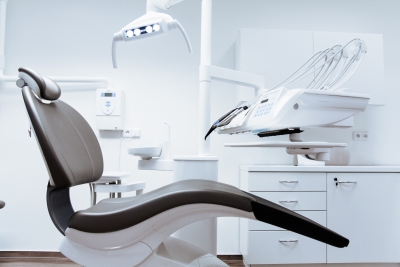7 important questions to ask your dental implant dentist
By IANS | Published: June 24, 2021 12:00 PM2021-06-24T12:00:17+5:302021-06-24T12:15:08+5:30
New Delhi, June 24 Dental implants are the most widely talked about treatment modality in dentistry nowadays. Dr. ...

7 important questions to ask your dental implant dentist
New Delhi, June 24 Dental implants are the most widely talked about treatment modality in dentistry nowadays. Dr. Richa Vats, Geriatric Dentist and Implantologist shares important facts regarding implants.
This is perhaps one of the most common and obvious first questions to ask before dental implants. A dental implant isn't an actual tooth, but a prosthesis used for replacing missing teeth. Basically, it's a small titanium fixture the dentist inserts into your jawbone, on top of which the dentist can attach a tooth. This process is done surgically. Implants serve as your missing teeth's roots. Since dental implants fuse with your jawbone, they won't make noise, slip or cause bone damage like dentures or fixed bridgework may.
A dental implant cannot harm the body adversely. The implant is completely submerged in the bone so you don't feel any foreign body sensation or irritation . Since it is made with titanium alloy it doesn't feel heavy either. Also it is safe to get an MRI or a CT scan done with implants, a radiologist might have trouble interpreting this scan because of the scattering artifacts.
While discomfort can vary between people, most individuals report getting their dental implant was much less uncomfortable than they anticipated it to be. During the surgical dental implant procedure, the dentist will give you an anesthetic, so you should feel minimal discomfort if any. If you follow the dentist's post-operative instructions and take the prescribed antibiotics, you should experience minimal discomfort. Your dentist will likely prescribe you pain medication as well. Postoperative instructions are almost similar to that of a dental extraction, which includes a soft diet, no smoking. Basically not disturbing the surgical site.
Very rarely does an individual's body reject an implant.The very few rejections are due to rare allergies to the titanium alloy that make up the implant.In this case your dentist will pull out the implant, allow the bone to heal and re-insert a new implant. Another reason why an implant could fail is if you don't take proper care of it after your surgery. Without excellent oral hygiene, natural teeth fail and fall out eventually. Dental implants are no different. When you take good care of your teeth and your implants, it will help prevent gum decay and structure failure later on.
Similar to any oral surgical procedure, there is a chance of infection, pain and inflammation. However, negative effects are rare and usually minor if they do occur. Also, if the dentist can't place the implant because of limited bone availability, then you may require a bone and gum grafting procedure, which could increase your treatment cost. To be a good candidate for implants, you need to have good oral and general health. You also need to have adequate bone in your jaw to support the dental implant, be free of periodontal disease and have healthy gum tissues.
An existing denture wearer
Disclaimer: This post has been auto-published from an agency feed without any modifications to the text and has not been reviewed by an editor
Open in app